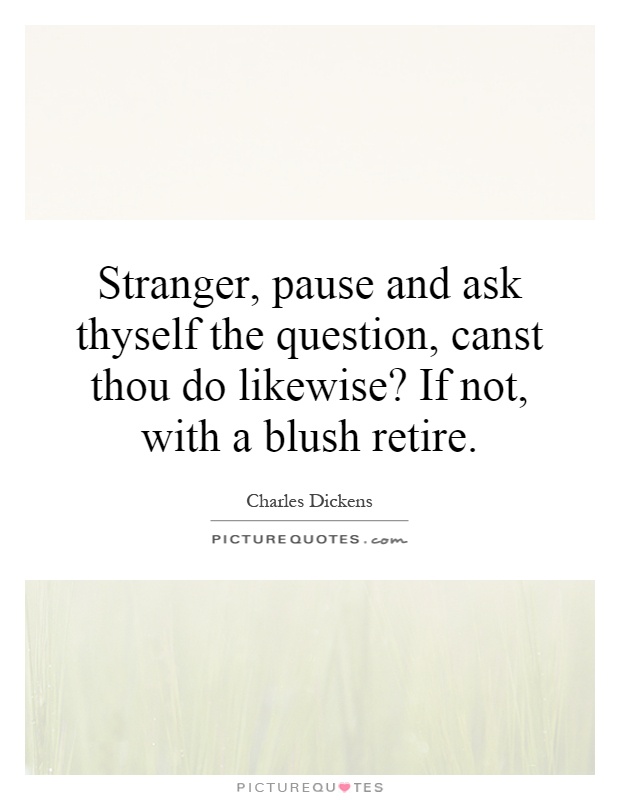Stranger, pause and ask thyself the question, canst thou do likewise? If not, with a blush retire

Stranger, pause and ask thyself the question, canst thou do likewise? If not, with a blush retire
In the context of Charles Dickens, the quote "Stranger, pause and ask thyself the question, canst thou do likewise? If not, with a blush retire" holds a deep and profound meaning that resonates throughout his works. Dickens was a master at portraying the struggles of the poor and downtrodden in Victorian England, and this quote serves as a reminder of the importance of empathy and compassion in a society that often overlooks the suffering of others.Throughout his novels, Dickens shines a light on the injustices and inequalities of his time, exposing the harsh realities faced by the working class and the poor. He challenges his readers to pause and reflect on their own actions and attitudes towards those less fortunate, urging them to consider whether they could do the same as the characters in his stories. If not, then they should feel a sense of shame and humility, and perhaps even be inspired to take action to help those in need.
One of Dickens' most famous works, "A Christmas Carol," exemplifies this theme of empathy and compassion. The story follows the transformation of the miserly Ebenezer Scrooge, who is visited by the ghosts of Christmas Past, Present, and Yet to Come. Through these encounters, Scrooge is forced to confront his own selfishness and indifference towards others, ultimately leading him to change his ways and become a more generous and caring person.












 Friendship Quotes
Friendship Quotes Love Quotes
Love Quotes Life Quotes
Life Quotes Funny Quotes
Funny Quotes Motivational Quotes
Motivational Quotes Inspirational Quotes
Inspirational Quotes